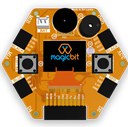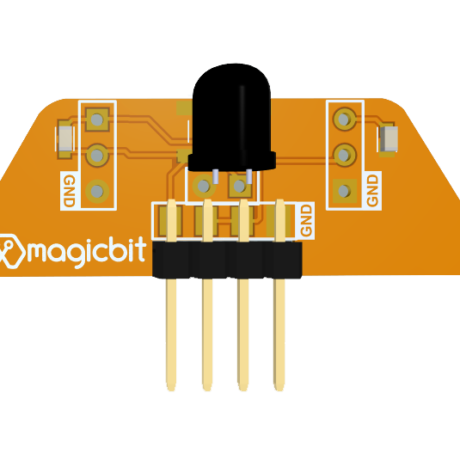
Flame Sensor
Use flame sensor to identify infrareds/heat bodies
Components Required


Introduction
A flame sensing module that consists of a flame sensor (IR receiver), resistor, capacitor, potentiometer, and comparator LM393 is an integrated circuit. It can detect infrared light with a wavelength ranging from 700 nm to 1000 nm.
Learning outcomes:
- Use flame sensor to identify infrared/heat bodies
Theory
IR receiver mainly use with an IR Transmitter, not only for identifying heat bodies. IR light is emitted by the sun, light bulbs, and anything else that produces heat. That means there is a lot of IR light noise all around us. To prevent this noise from interfering with the IR signal, a signal modulation technique is used. In IR signal modulation, an encoder on the IR remote converts a binary signal into a modulated electrical signal. This electrical signal is sent to the transmitting LED. The transmitting LED converts the modulated electrical signal into a modulated IR light signal. The IR receiver then demodulates the IR light signal and converts it back to binary before passing on the information to a microcontroller. Here we use this sensor to identify flames.
Methodology
As the first step, you should connect a Magicbit flame sensor to the Magicbit core board. For this, you can use one side connector from four-side connectors of the Magicbit core board or if you want to extend the length of the connection, you can use jumper wires. For this example, the flame sensor was connected to the upper left connector of the Magicbit core board. Then connect the Magicbit to your pc and upload the code. You can get outputs using a serial monitor.
Code
const int FLAMEpin = 32;
void setup() {
Serial.begin(9600);
pinMode (FLAMEpin, INPUT);
}
void loop() {
Serial.println(analogRead(FLAMEpin));
delay(100);
}
Explanation
Here we give an analogRead. That is because we have to measure a range to make a decision that is there a flame or not.



